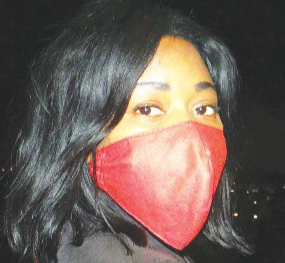A bus drives past the Independence Memorial Museum by night, and four of its excited passengers decrease their chatter to a stillness.
Though each has passed that way before, the evening several hours after a man allegedly ended his life with a decisive leap from the fourth floor feels different, demanding perhaps, of far less merriment.
“What’s on the fourth floor?” a passenger asks, looking up past the large bronze statue of the founding father that guards the select history within the iconic coffee machine.
Their question is promptly answered by an illuminated sign advertising an incoming museum restaurant, perhaps the very place reports say the man asked for some water.
The large bus, an odd sight on a dark night, is delivering its passengers to an art event concerned with ‘lost connections’, and it strikes me that the man reaches for one last one before he goes. It doesn’t save him, but the gesture is telling. It speaks to our need, even in the minutes before death, for human interaction and care.
I don’t know the man’s story, but I do know that sometimes the world feels lonelier than ever.
Pitiless economic times have made many of us feel incapable of existing in a system where nothing is free and no matter how hard one works, the basics of keeping the lights on, food in the fridge and a safe roof overhead often feel impossible.
I know the shame of struggling, not getting ahead in life or being unable to achieve the accepted indicators of success can be isolating and cause people to withdraw from society.
I appreciate that this withdrawal, lack of support and self-inflicted exile can lead to mental health crises, dark thoughts, feelings of inadequacy, worthlessness and sometimes, ultimately, notions of suicide.
I know that mental illness is stigmatised, extreme or difficult emotions should ostensibly be hidden, kept quiet, and that people prefer we pretend we’re okay.
Especially if we happen to be a man.
I know our relationships and interactions have been hollowed and abbreviated by the very technology that is meant to keep us connected and that the high-sheen, toxically positive life so many of us curate on social media is only 5% of the truth.
And the larger truth is that life is incredibly hard.
We foolish humans made it so.
The possibilities of what the world could be are endless, but this, God help us, is what we choose.
A world constantly at war.
A planet with enough for all carved up into countries and distributed to the highest and most violent bidders.
We choose racism, sexism, misogyny and anti-LGBTQI+ hate.
We drown in corruption, elitism and greed, homicidal nationalism, fatal egotism, divisive religion and failed patriarchy instead of unity, equality, inclusion, diversity, fair distribution, true global community and lifelong provision and care.
It makes me sick to think about it and to ultimately be a part of the machine and the problem, knowing that we can and should demand and do better.
I don’t know what the man who leapt went through.
But I know he lived here, on earth, and that, for myriad reasons, can often be unbearable.
We each live, wither and grow in our minds, and it is one of the toughest gardens to tend, plagued by weeds of self-doubt, self-loathing and the hurt, injustice, disappointment and rejection we experience in real life.
At best, often with the help of others, healers, activists and community, we learn to alchemise this pain, transforming it into lessons, ideas, art, change or the revolution that pushes us forward.
At worst the world as it is simply bleeds us dry.
No matter the request for a little water.
– martha@namibian.com.na; Martha Mukaiwa on Twitter and Instagram; marthamukaiwa.com
Stay informed with The Namibian – your source for credible journalism. Get in-depth reporting and opinions for
only N$85 a month. Invest in journalism, invest in democracy –
Subscribe Now!






